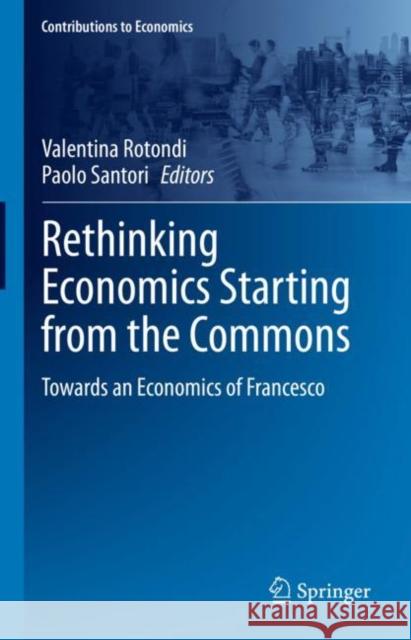Rethinking Economics Starting from the Commons: Towards an Economics of Francesco » książka
Rethinking Economics Starting from the Commons: Towards an Economics of Francesco
ISBN-13: 9783031233234 / Angielski / Twarda / 2023 / 236 str.
Rethinking Economics Starting from the Commons: Towards an Economics of Francesco
ISBN-13: 9783031233234 / Angielski / Twarda / 2023 / 236 str.
(netto: 575,06 VAT: 5%)
Najniższa cena z 30 dni: 539,74
ok. 16-18 dni roboczych.
Darmowa dostawa!
This book proposes a new approach to economics, starting from the commons and based on the Economy of Francesco (EoF), a worldwide movement of young people who aim to change the current economic models and working towards a fair, sustainable, and inclusive economic system. EoF was convened by Pope Francis and is inspired by the example of St. Francis of Assisi, featuring Franciscan economic roots and institutions, as well as theories of the social sciences.The authors raise and answer several important questions throughout the volume, such as: What if the economic courses taught in the universities across the globe focused their attention on the topics of the commons rather than on private goods? What if social businesses, rather than being considered as a hybrid form of businesses, became the normal approach, and ethical and green finance ruled over the standard financial sector? Is it possible to move away from the primacy of the consumers to the preeminence of ethical consumers who express their preferences for an inclusive, sustainable, and workers-friendly economic system with their daily choices?Using a unique approach, the book includes the contributions of prominent scholars which are integrated and discussed by young international scholars, providing a fresh analysis with a glance of hope for the future. The book is a must-read for students, scholars, and researchers of economics and related disciplines interested in alternatives to the current economic mainstream in general, and the Economy of Francesco in particular.
This book proposes a new approach to economics, starting from the commons and based on the Economy of Francesco (EoF), a worldwide movement of young people who aim to change the current economic models and working towards a fair, sustainable, and inclusive economic system. EoF was convened by Pope Francis and is inspired by the example of St. Francis of Assisi, featuring Franciscan economic roots and institutions, as well as theories of the social sciences.











